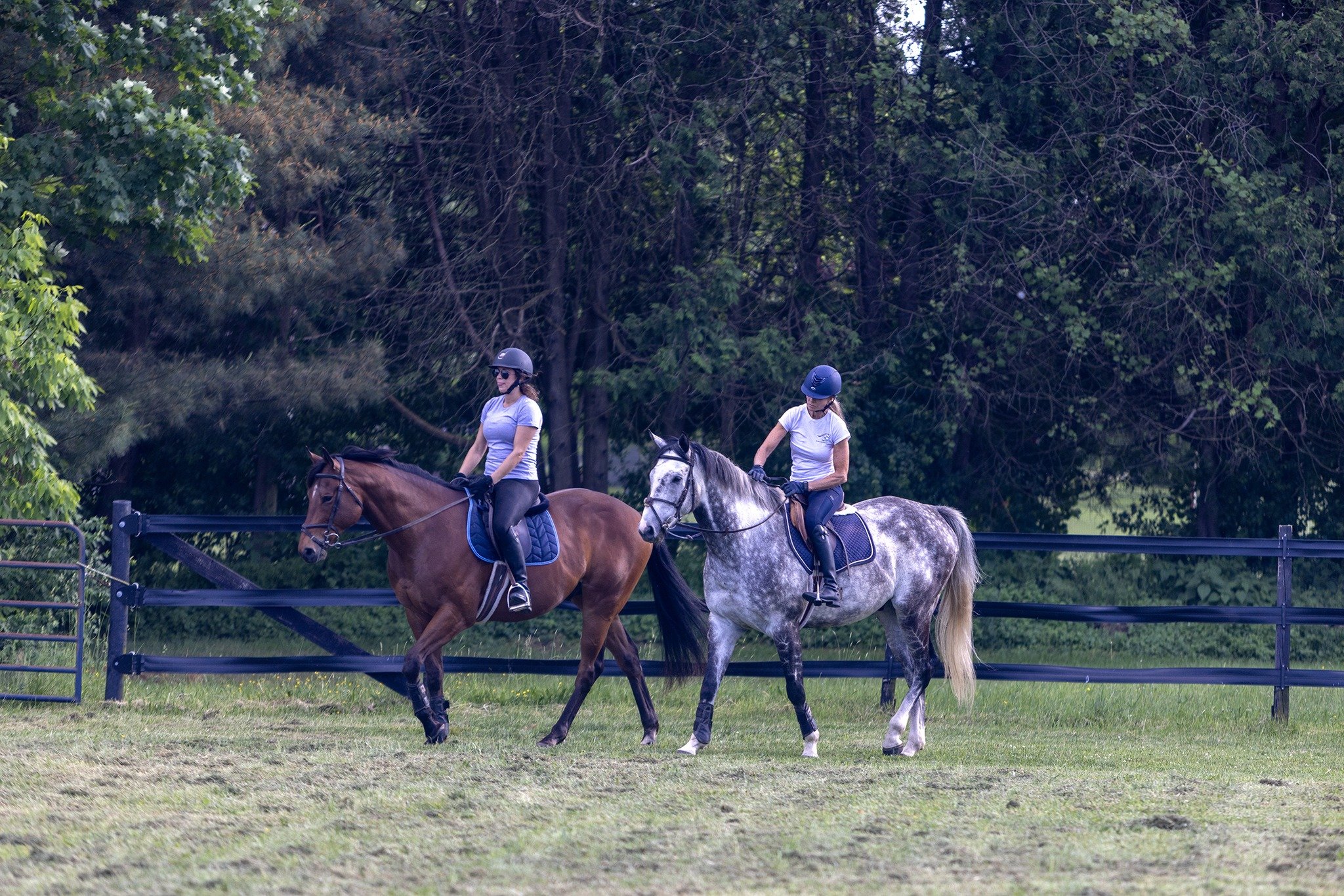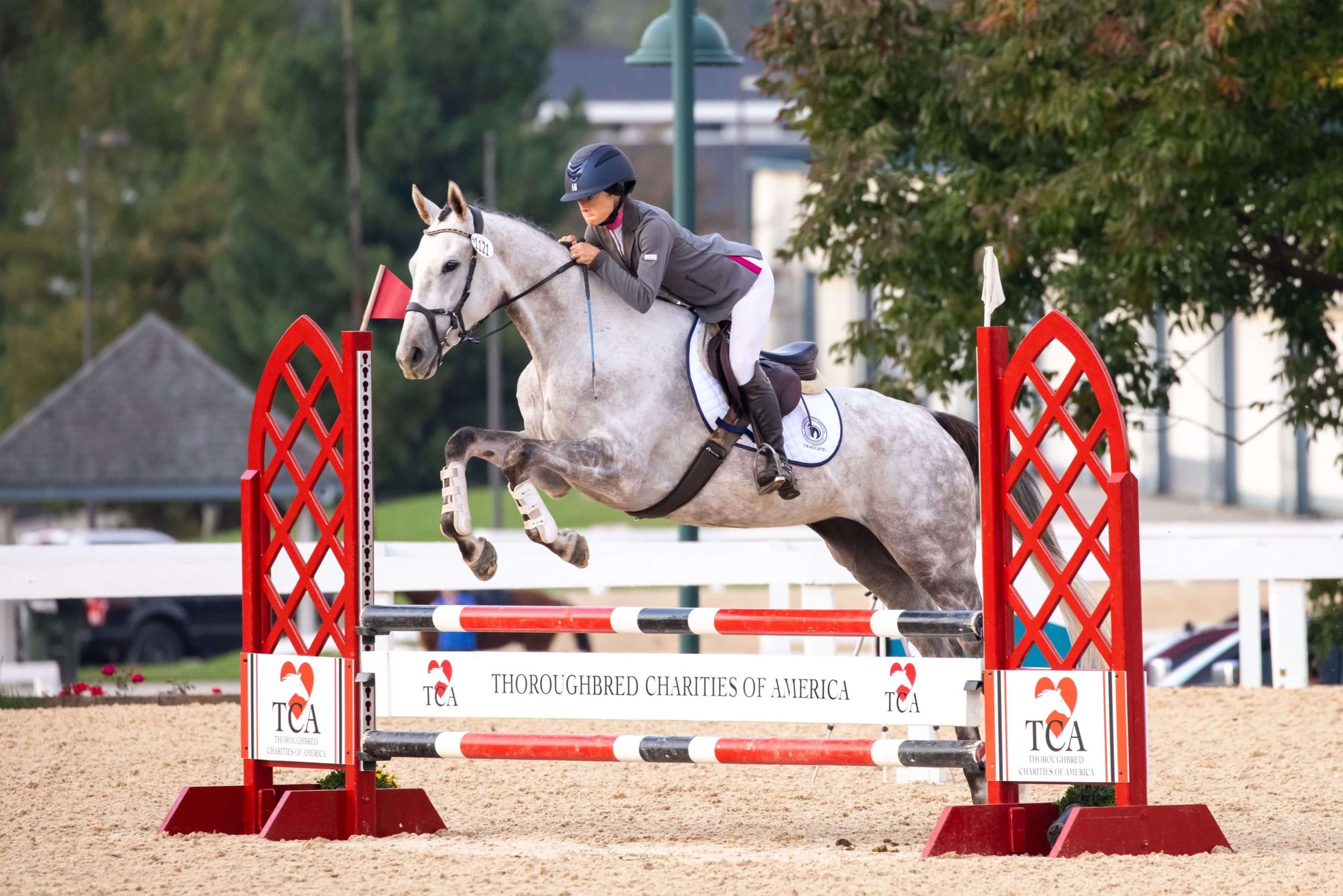The work being done by the Thoroughbred Charities of America - supporting thoroughbreds and those who care for them
Article by Ken Snyder
There are many gifts that keep on giving but few that give back like the Thoroughbred Charities of America’s annual auction of stallion seasons. The 2025 auction offered seasons to top Thoroughbred stallions such as Volatile, Charlatan, Blame, Liam’s Map, and Violence. Without question, the resulting foals from these seasons could give back rewards on the racetrack dwarfing a winning bid. Moreover, rewards aren’t limited just to successful bidders.
“The Thoroughbred industry is extremely charitable,” said TCA’s executive director, Erin Halliwell. That charity begins with season owners who willingly donate a stallion season. This year, 2016 Kentucky Derby-winner Nyquist, who stands for a fee of $175,000 in 2025 and who earned $5.1 million in purses, was the top seller, bringing a winning bid well above his fee. Owner of Nyquist, Godolphin, donated 100% of money from the bid to TCA.
Historical gross auction totals range between $700,000 to $1 million produced annually, according to Halliwell.
TCA’s stallion seasons are offered on a “no guarantee” basis. Meaning, “the buyer takes on more of the risk, but the reward is that you can potentially get a season for quite a bit lower than the live foal fee, sometimes around fifty percent,” said Halliwell. Successful bidders can and do take out insurance on breeding to mitigate risk.
To ensure quality and depth of the auction each year and generate maximum donations, TCA seeks stallions with full breeding books. “In the case of Vekoma [winner of two Grade One races and the Grade Two Toyota Bluegrass Stakes] and Nyquist, there were no more seasons. The only place you can get a season was at the TCA auction. And we love that.”
It is a “win-win-win” for all parties. Season owners give back to worthwhile causes in the industry with a breeding season; bidders can score a potential racetrack star foal from a breeding to a top Thoroughbred; and TCA can continue raising money for non-profit organizations working to support Thoroughbreds and the people who care for them.
Since the organization’s founding in 1990, TCA has distributed over $27 million to more than 200 Thoroughbred industry organizations. Grants span the gamut of Thoroughbred aftercare organizations and support to workers in the Thoroughbred industry. Aftercare grantees can be divided between organizations, those focused on retiring or retired horses (like Old Friends, for example) or rehabbing, retraining and re-homing organizations like New Vocations, Canter, or Second Stride--according to Halliwell. “Those types of more traditional organizations are taking possession of the horses, working with them to ultimately get them into a new home, and into a second career.
“Then also within aftercare, we support organizations that are working to incentivize equestrians to choose a Thoroughbred as their next horse,” she added. These grantees include the Retired Racehorse Project, which hosts an annual “Thoroughbred Makeover” event at the Kentucky Horse Park. This event takes retired Thoroughbreds from the racetrack and provides an opportunity for them to compete in disciplines ranging from Ranch Work, Barrel Racing, and Competitive Trail to Dressage, Eventing, and Show Jumpers. Trainers compete for prize money with retired Thoroughbreds transitioned to a new discipline or disciplines.
Lastly, TCA also supports several on-track placement programs.
“These organizations work directly with owners and with trainers on the backside by helping them to find an appropriate aftercare facility for their horses.
She added, “When it comes to aftercare, Thoroughbreds have more programs in place than any other breed. Success or position, however, doesn’t alter TCA’s goals. “ But, we're not there yet. There's a lot more that needs to be done in aftercare.”
At the same time, TCA is unique in the Thoroughbred industry as it supports organizations that provide health and human services to backstretch and farm workers.. “To the best of my knowledge, there aren't any other organizations that are granting to both types of organizations. “
Bridging human and horse needs evolved from a desire by TCA founders to be inclusive, which then led to flexible funding guidelines. This enables TCA to fund the Grayson Research Foundation, which, in turn, supports studies of advanced veterinary medicine in the breeding, raising, and healthcare of horses. In 2025, expenditures of $2.4 million from Grayson will fund 11 new projects and 13 continuing projects at 14 universities in the U.S. In total, since 1940 Grayson has provided more than $42.3 million to underwrite more than 437 projects at 48 universities.
Projects include a study to improve the diagnosis of spinal cord disease in horses, development of a vaccine to control and prevent equine rotavirus B infection in future foaling seasons, and a study to establish fetlock screening that uses computed tomography for diagnosis of horses with a high risk of serious injury.
In the past several years TCA has also expanded its support in emergency aid for horses and their caretakers resulting from neglect and natural disasters. Specifically, TCA saw, according to Halliwell, a need beyond aftercare in the wake of a number of cases and events.
“In 2016 there was a large-scale abandonment-of-horses case in Kentucky. At that time, TCA had a small emergency fund for something like this.” The TCA responded immediately with Halliwell contacting a hay supplier to get hay to the horses.
“I remember coming back from the horses and a former board member, Jamie Roth, with LNJ Foxwoods Stable, called me and said, ‘I want to do something more.’
She had talked with her family, and they wanted to start a fund for situations like this because we don’t have the time to raise money or have a fundraiser. She said, ‘I just want a fund there that we can tap into like the Red Cross.’”
Thus was born TCA’s Horses First Fund. The Fund has provided support in other equine-neglect cases and even gone offshore. Hurricane Maria, which struck Puerto Rico in September 2017 trapped 1,000 horses at the Camarero Racetrack behind debris that had fallen, preventing owners from getting to their horses along with other damage to the island.
“We worked with several other agencies, including Caribbean Thoroughbred Aftercare, to get a load of feed and supplies into the track.”
Through industry connections and the help of numerous other organizations, TCA’s Horses First Fund was able to assist with the transport and delivery of plane loads of vital feed and supplies to the Thoroughbreds at Camarero in the wake of the hurricane.
“The Horses First Fund was so important to that situation.” Only four months later, the Horses First Fund assisted in the wake of fires that destroyed nine horse barns and killed 46 horses at the San Luis Rey Training Center in Southern California. Firemen and barn workers successfully evacuated 475 horses. In this instance, the Horses First Fund supplied both supplies to horses and backside workers.
A question often asked about the auction is who is the most outstanding foal that came from a stallion season. It is a horse named Heart to Heart foaled in Canada and sired by English Channel out of Ask the Question by Silver Deputy. This horse earned Canada’s Sovereign Award in 2014 as champion three-year-old.
“It's so ironic,” said Halliwell. “His star on his forehead is in the shape of a heart and TCA’s logo is a heart.
“He was our cover boy for a while on some of our auction marketing, because, you know, he was one of the successful foals, right?”
And a horse who kept on giving, indeed. Heart to Heart won two Grade One Stakes, two Grade Two Stakes, and seven Grade Threes. The earnings and rewards to the successful bidder for a stallion season to English Channel? A mere $2,035,090.
“Successful” is understating it.






